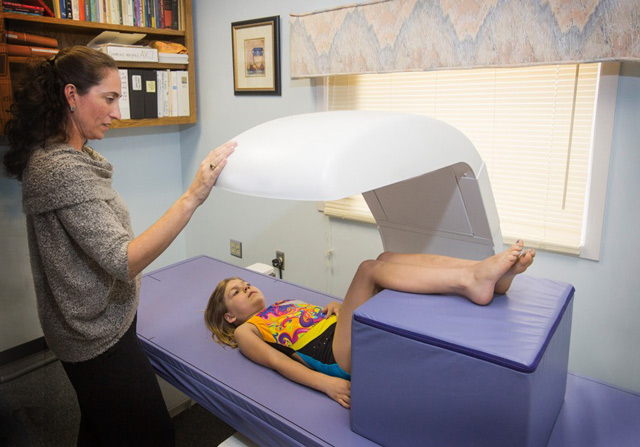Mothers who want their children to have strong bones as they grow should consider taking a Vitamin D supplement during their pregnancy. This is the primary finding of a freshly-published study from the United Kingdom.
According to the study’s conclusion, mothers who took a Vitamin D supplement while pregnant were more likely to have children with healthy bone density at age seven.
To reach their conclusions the researchers conducted bone density scans on test subject children after they were born. The scans clearly revealed a greater calcium and mineral density in the children of the supplement test group.
The findings of the latest study were published in The American Journal of Clinical Nutrition in November 2024.
Since Vitamin D deficiency is a common worldwide problem, it is perhaps not surprising that health benefits can be realized by simply improving the Vitamin D blood serum level in the average person—whether a mother nor not.
This situation is unique, however, since it demonstrates the supplementing benefit is passed on to offspring. Moreover, the benefit is long-term, providing many years of improved health from a relatively short period of supplementing during the nine months of pregnancy.
The findings are a critical factor for all parents to consider since it is already known that children with greater bone density are much less likely to suffer bone fractures as they mature into adulthood. In fact, earlier this year a new study conducted at University of Florida Health showed children with insufficient Vitamin D levels took “weeks longer to heal” following an injury.
Reinforcing earlier studies
The new study, conducted at the University Hospital Southampton, was an expanded version of a well-known 2009 study called MAVIDOS. In that study—which also showed positive pregnancy supplementing benefits—1,000 pregnant women received either a placebo tablet or 1,000 extra IU per day of vitamin D.
In the MAVIDOS study the children’s bone health was assessed at an earlier four years of age. The results showed that the child’s bone mass was greater in children born to mothers who took greater amounts of Vitamin D during pregnancy.
The latest study was designed to evaluate if these effects continued into later years. The team followed up with 454 children between six and seven years old, born to mothers who took part in the study. The results confirmed that the beneficial effect on children’s bones was similar in the present day as it was when the children were around four years old.
“This early intervention represents an important public health strategy,” said Dr. Rebecca Moon, clinical lecturer in child health at the University of Southampton, and lead author of the study. “It strengthens children’s bones and reduces the risk of conditions like osteoporosis and fractures later in life.”
Dire stats
According to a 2023 American Academy of Pediatrics survey, approximately 15% of children between 1 to 11 years old are deficient in Vitamin D.
Unfortunately their survey showed stats get even worse as children age: approximately 17% of adolescents are deficient and 32% of young adults are deficient.
When looking at an average of all age groups together—youth, middle-age and seniors—the situation is dire: about 42% of Americans are deficient in Vitamin D.
– – –
Find Vitamin D in the following Optimal Health Systems products:
• Essential DAK1K2
• Exposure Protection Pak
• Optimal Longevi-D K2
• Whole Food Vitamin-Mineral
• Opti-Immune-VRL
– – –
Sources: The American Journal of Clinical Nutrition, Lancet Diabetes Endocrinology, American Academy of Pediatrics.


